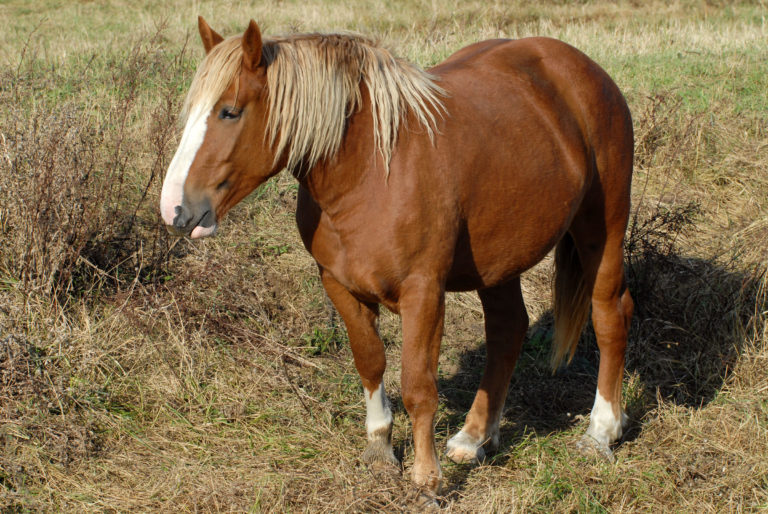The Equine Disease Communication Center (EDCC) offers alerts about equine diseases that have been confirmed by reliable sources. The following information is from the EDCC. The following reports are in chronological order from most recent to oldest from previous reports.
Fairgrounds Racetrack Sees Another Positive EHV-1 Case
On December 30, 2016, a horse in barn #14 at the New Orleans Fairgrounds Racetrack spiked a fever and was placed in quarantined isolation. The horse has tested positive for EHV-1 neuropathogenic strain in blood and nasal lavage. The horse is not showing neurologic signs and is being closely monitored and is under the care of a private veterinarian. Strict biosecurity is in place at the quarantine isolation facility. Exposed horses in barn #14 continue to have their temperatures monitored twice daily and enhanced biosecurity measures remain in place.
On December 31, 2016, a horse in barn #36 spiked a fever with clinical signs of mild hind leg deficits and nystagmus. The horse was placed in quarantined isolation and the barn was quarantined. Blood and nasal samples sent to the LA Animal Disease Diagnostic Lab tested PCR positive today for EHV-1 non-neuropathogenic or wild type strain. The confirmed EHV-1 wild strain case and barn #36 have been placed under quarantine for 2 weeks. The confirmed EHV-1 neuropathogenic case from barn #14 is under continued quarantine isolation and is asymptomatic at this time. Barn #14 is under continued quarantine with no new febrile cases. All horses under quarantine are having their temperatures monitored twice daily and enhanced biosecurity measures remain in place. State, federal, and racing commission veterinarians are coordinating with track personnel on monitoring the incident.
Louisiana Department of Agriculture & Forestry, USDA, and Racing Commission veterinarians and Fairgrounds personnel are onsite and are monitoring the incident. For more information on EHM go to www.aaep.org/custdocs/EHMFactsheetFINAL.docx.
Inyo County, California, EHV Quarantine Released
After repeated negative test results from confirmed cases, the premises in Inyo county has been released from quarantine. For background information go to: https://www.cdfa.ca.gov/ahfss/animal_health/equine_herpes_virus.html.
About EDCC
The Equine Disease Communication Center works to protect horses and the horse industry from the threat of infectious diseases in North America. The communication system is designed to seek and report real time information about disease outbreaks similar to how the Centers for Disease Control and Prevention (CDC) alerts the human population about diseases in people.
The goal of the EDCC is to alert the horse industry about disease outbreak information to help mitigate and prevent the spread of disease. Ultimately frequent and accurate information about diseases outbreaks improves horse welfare and helps to prevent negative economic impact that can result from decreased horse use due to a fear of spreading infection. As part of the National Equine Health Plan the EDCC will serve as part of the communication to help educate and promote research about endemic and foreign disease.
Working in cooperation with state animal health officials and the United State Department of Agriculture, the EDCC seeks information about current disease outbreaks from news media, social media, official state reports and veterinary practitioners. Once information is confirmed, it is immediately posted on this website and messages sent to all states and horse organizations by email. Daily updates are posted until each outbreak is contained or deemed no longer a threat.
The EDCC is made possible by generous donations from organizations and horse owners. Please visit our sponsors that have generously supported this program for the benefit of the health and welfare of horses. To learn how you can help go to SUPPORT.








